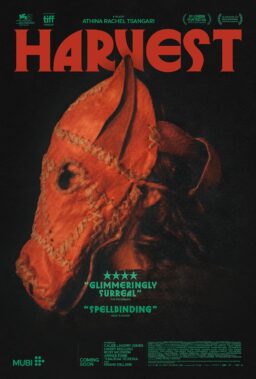1.
“Op-ed: Movies aren’t math“: At The Dissolve, Matt Singer tackles the absurdity of IMDb’s ratings-driven lists ranking the best and worst films of all time.
“Even under optimal circumstances, movies aren’t math. And on
the Internet, optimal circumstances don’t happen that often. IMDb’s head of PR
told FiveThirtyEight that while the site monitors potential examples of “ballot
stuffing, the policy is not to delete or modify individual ratings from
registered users.” So ‘Gunday’’s
worst movie ever status stands for now, at least until Justin Bieber mobilizes
his followers against the French New Wave. So remember to consider the
methodology of what you’re reading online. Rankings and list are fun, but it’s
always wise not to put too much stock in anyone’s opinion but your own.
Just because IMDb says something is the worst movie ever made, that doesn’t
make it so.”
2.

“Zac Efron’s Blank Face Is This Movie’s Secret Weapon“: Vulture‘s Bilge Ebiri on Nicholas Stoller’s “Neighbors”
“Stoller and Efron strike a nice, subtle moment of
alienation when Teddy finds himself at a job fair, not knowing what to do with
himself. As his frat brothers start to think about the real world after
college, Teddy hopes to remain forever young, a perverted Peter Pan of drunk
entitlement. A little of that goes a long way, however, and Efron doesn’t
attempt to give his character too much of an inner life. Or rather, the
movie does it for him. We can’t quite tell what’s happening beneath that
placid, emotionless face: Is he scheming? Is he freaking out? Is he just too
dumb to care? That very unknowability, which hampered so many Efron
performances in the past, turns out to be his most humanizing trait, and ‘Neighbors’’ secret weapon.”
3.

“The Great Flood“: Film Comment‘s Donald Wilson suggests a strategy for critics aiming to cover the increasing number of films set for release during a given week.
“There’s a more apt prescription than jokingly asking distributors
to put out fewer films (most indie distributors today tend to use lackluster
and mediocre but commercial releases to subsidize more adventurous fare), or
trying to shame filmmakers into making fewer movies. Instead of attempting to
achieve some impossible platonic ideal of fairness (the ‘Times,’ though it reviews every
release, certainly prioritizes films in a number of subtle ways: review
placement, photo inclusion, length, additional feature coverage), shouldn’t the
cultural gatekeepers live up to their responsibilities? Instead of covering
every film released, they should make smart decisions about what films are
worth covering (and on what platforms they’re being released—should great films
released only on streaming be penalized for how they reach viewers?).”
4.

“‘Washington, T.V.’: ‘House of Cards’ vs. ‘Veep’“: At Grantland, Andy Greenwald makes his case for which show “truly draws Beltway blood.”
“’Veep,’ which will begin its third season on HBO on Sunday, April
6, is the only effective antidote to ‘House
of Cards’’ smug bile. It’s also a show about an upwardly mobile
vice-president trapped in a D.C. bubble that may as well be a bathysphere.
Here, too, is the small army of yes-men and -women who fuel the VP’s rise, the bumbling
president whose limitations suggest future possibilities, and the general
celebration of executive power as its own reward. And yet ‘Veep’ views these things not with
undisguised admiration but with the mockery and gleeful contempt they deserve.”
5.

“John Oliver, Charming Scold“: Ian Crouch of The New Yorker pens a superb analysis of HBO’s weekly series, “Last Week Tonight With John Oliver.”
“Where Oliver’s show has the potential to outpace ‘The Daily Show,’ or
at least to break from it more convincingly, through a sustained campaign
against another target: its own audience. Jon Stewart has gained a steady,
dedicated following by marshalling the anger and frustration of his like-minded
fans against the villainy of Fox News and the Republican Party. It is a world of
us against them. Oliver, meanwhile, appears to be doing something different.
Rather than become the leader of an audience of acolytes, he seems to be out to
subtly correct his audience’s prejudices and blind spots. If Stewart is
evangelical, Oliver is professorial. His bit on the Indian election was akin to
the current rush of explainer journalism, in which a smart person more or less
reads the newspaper for you, tells you why this or that thing matters, and
nudges you toward a final judgment.”
Image of the Day

Photographers such as Richard Avedon may want to take note of the patent, “Studio arrangement,” recently announced in DIY Photography, that grants Amazon IP ownership of “what we call shooting against a seamless white backdrop.”
Video of the Day
FAST-MO: FAST MOTION SEQUENCES IN FILM from Leigh Singer on Vimeo.
Check out Leigh Singer’s video essay on fast-motion film sequences accompanied with a fine written essay by Nelson Carvajal over at IndieWire.












